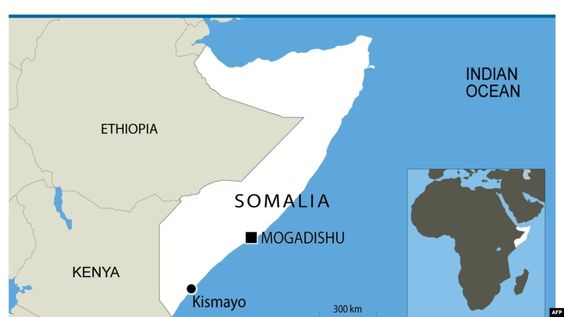Africa
Senior Islamic State official is killed by US forces in Somalia

In secluded northern Somalia, American special operations forces have killed a senior Islamic State group official as well as 10 other terrorists, the Biden administration reported Thursday.
The operation conducted on Wednesday was directed at Bilal al-Sudani, a crucial financial intermediary for the international terrorist group who was hiding out in a network of mountain caves.
Defense Secretary Lloyd Austin said in a statement that the move “leaves the United States and its partners safer and more secure, and it demonstrates our firm commitment to safeguarding Americans from the threat of terrorism at home and abroad.”
months of preparation
The potential mission was explained to President Joe Biden last week following months of planning. According to two senior Biden administration officials who briefed reporters on the operation under the condition of anonymity, he provided final authority to carry out the operation this week on the advice of Austin and Army General Mark Milley, the chairman of the Joint Chiefs of Staff.
READ ALSO: M23 rebels gain ground in East DR Congo, new battles erupt
According to Austin, Al-Sudani, who has been on U.S. intelligence agencies’ radar for years, was crucial in providing funding for IS operations in Africa as well as the ISIS-K terrorist branch operating in Afghanistan.
Al-Sudani allegedly collaborated closely with Abdellah Hussein Abadigga, an IS operative who recruited young men in South Africa and sent them to a weapons training camp, according to allegations made by the U.S. Treasury Department last year.
Abadigga, who was in charge of two mosques in South Africa, used his influence to demand money from the mosques’ members. According to Treasury, Al-Sudani viewed Abadigga as a dependable ally who could aid the IS followers in South Africa in strengthening their organisation and enlisting new recruits.
aided foreign combatants
The Treasury Department initially classified al-Sudani in 2012 due to his affiliation with al-Shabab, another terrorist group active in Somalia. According to a senior government official, he provided money for violent extremists in Somalia and assisted foreign fighters in getting to an al-Shabab training camp.
According to Pentagon officials, neither the injured nor the killed during the raid were civilians. According to a government official, one American who participated in the operation was bitten by a military dog but was not gravely hurt.
Few specifics concerning the operation’s execution or the circumstances surrounding the death of the Sudani were disclosed by U.S. officials. Al-Sudani was supposed to be captured, but according to one official, it wasn’t “possible” given how the operation was carried out.
Days prior to the operation, Africa Command announced that it had carried out an attack in collective self-defense northeast of the capital Mogadishu, close to Galcad. In that episode, more than 100 al-Shabab fighters launched a protracted and aggressive attack on Somalia’s National Army personnel, which resulted in fierce combat.
In that operation, the U.S. assessed that 30 al-Shabab fighters were killed.
The Somalian military’s onslaught against al-Shabab has been called the most significant in over ten years.
In comparison to IS, al-Shabab has a far larger presence in Somalia.
